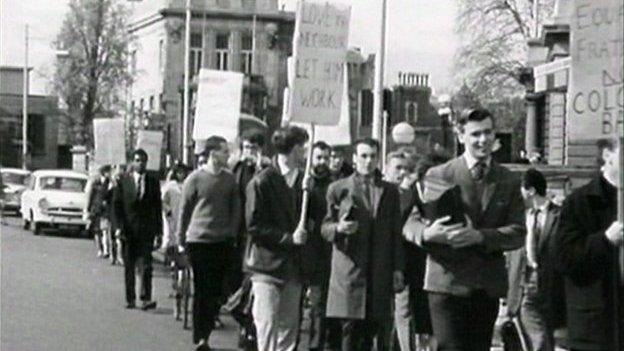Bristol's Dr Paul Stephenson has train named in his honour
- Published
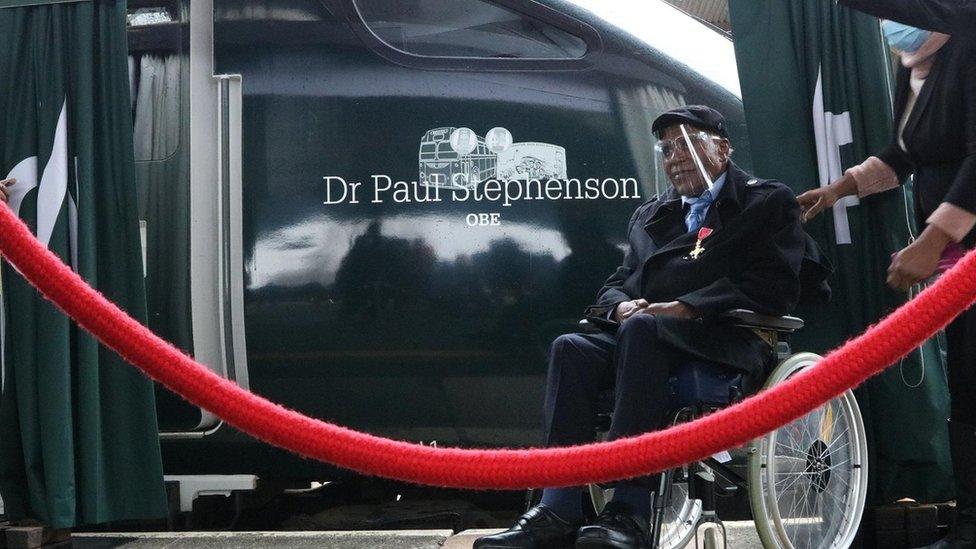
The name of intercity express train 800036 was revealed at a ceremony at Bristol Temple Meads Station
One of the UK's leading civil rights campaigners has had a train named in his honour.
Dr Paul Stephenson organised the 1960s Bristol bus boycott which overturned a ban on people from ethnic minorities working on buses in the city.
Great Western Railway, which said it wanted to recognise his dedication to civil rights, held a naming ceremony at Bristol Temple Meads station.
Dr Stephenson, 83, said it was "a wonderful gesture".
"I feel very proud to be considered by GWR as one of its Great Westerners," he added.
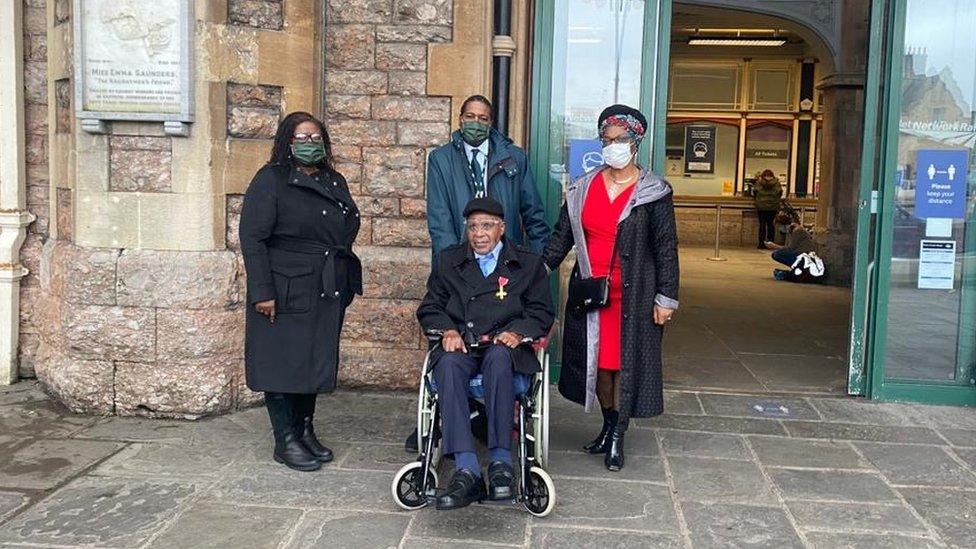
Dr Stephenson posed for photographs as he arrived for the ceremony
"History is very important for understanding who we are, what's happening to us today and where our vision is for tomorrow.
"It is vital to take ownership of our history and to revisit it from time to time to ensure we have a clearer picture of our time and understanding of our humanity."
Dr Stephenson, whose name will feature on GWR intercity express train 800036, has spent more than 60 years campaigning for the British African-Caribbean community.

Who is Dr Paul Stephenson?
The son of an African father and mixed-race British mother, he arrived in Bristol in 1962.
He organised a boycott of the Bristol Omnibus Company, after which its policy of discrimination was ended.
His campaigns were instrumental in paving the way for the first Race Relations Act in 1965.
In 1992, he also helped set up the Bristol Black Archives Partnership, which protects and promotes the history of African-Caribbean people in the city.
He was made an OBE in 2009 for his services to equal opportunities and to community relations.

He was nominated for the train naming by the public and staff as part of GWR's Great Westerners campaign, recognising past and present "heroes" from across the network.
Co-chair of GWR's Reach network (Recognising Ethnicity and Cultural Heritage), Jean Cook, said Dr Stephenson's "courage and determination changed the way we all live for the better".
"As a Black Asian Minority Ethnic staff network within GWR, Reach was keen to recognise his lifelong tenacity in knocking down obstacles to equality, inclusion and representation in the workplace."

Follow BBC West on Facebook, external, Twitter, external and Instagram, external. Send your story ideas to: bristol@bbc.co.uk , external
Related topics
- Published29 April 2020
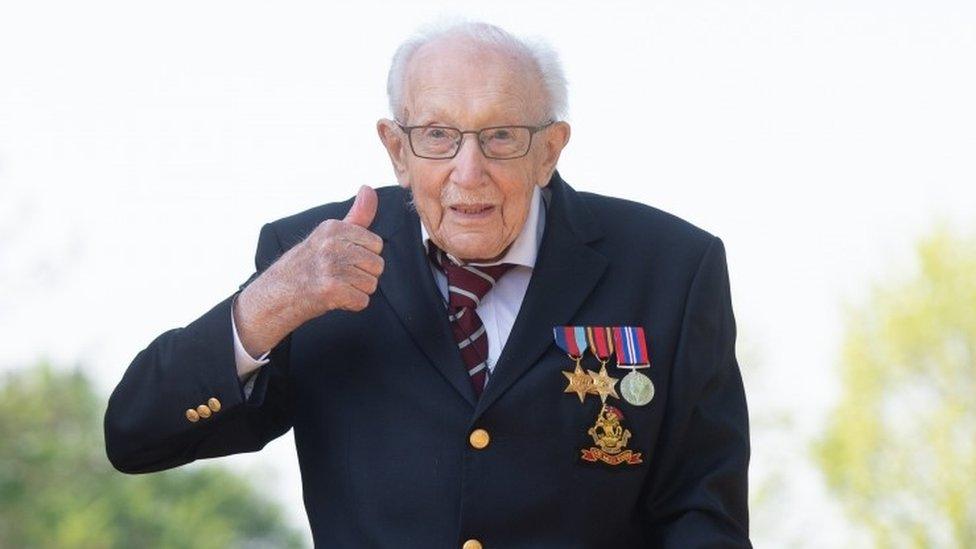
- Published25 June 2020
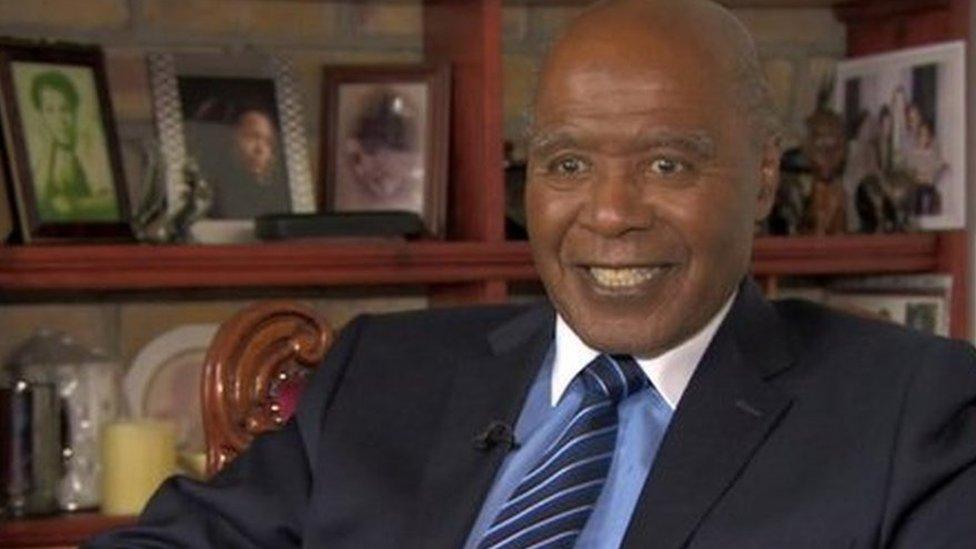
- Published18 July 2014
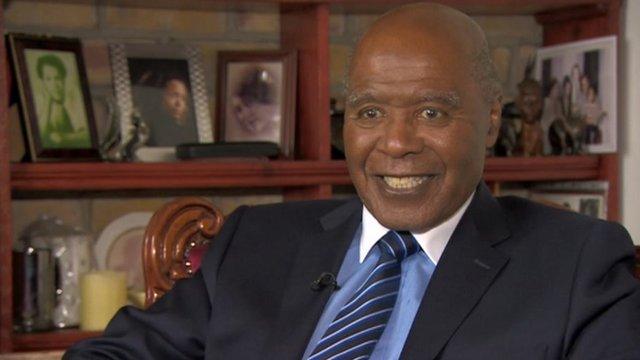
- Published25 February 2013
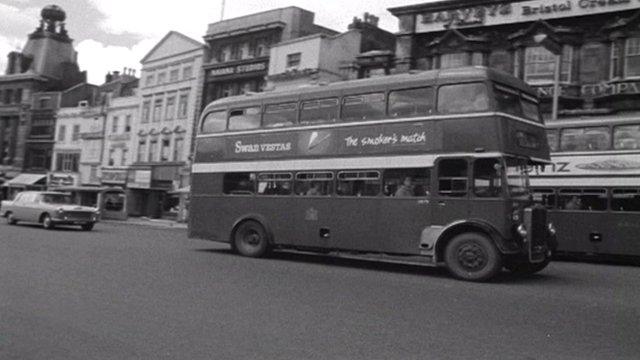
- Published27 August 2013
